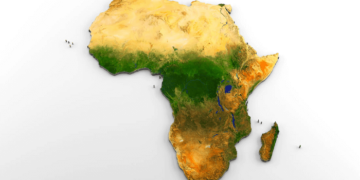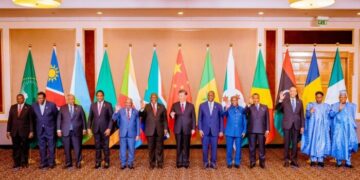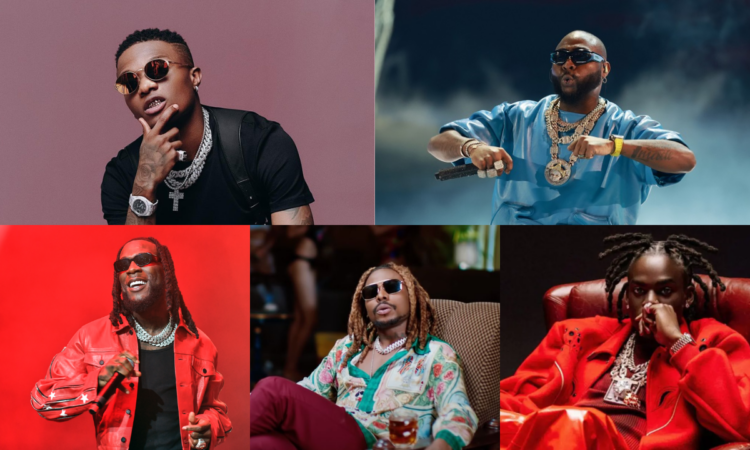Afrobeat, a genre born in West Africa, has steadily climbed to global prominence, dominating platforms like Spotify and YouTube. Its roots can be traced back to Nigeria, with legendary artist Fela Kuti in the 1960s and 1970s pioneering a blend of traditional Yoruba music, jazz, and funk. Fela’s son, Femi Kuti, continued this legacy, even performing at Glastonbury decades after his father graced the same stage in 1984.
The genre’s evolution into contemporary Afrobeat took off in the late 1990s and early 2000s as Nigerian artists like 2Baba, D’banj, and P-Square infused elements of hip-hop and pop. This new sound captivated audiences, paving the way for the next generation of stars. The genre’s international breakthrough came in the mid-2010s, with artists such as Wizkid, Davido, and Burna Boy gaining global recognition. D’banj’s 2012 hit *Oliver Twist* became the first Afrobeat track to chart in the UK’s top 10, while Wizkid’s collaboration with Drake on *One Dance* in 2016 cemented Afrobeat’ presence on the global stage.
Streaming platforms like Spotify, Apple Music, and YouTube played a crucial role in expanding Afrobeat’ reach. Between 2017 and 2022, Spotify saw a 550% surge in Afrobeat streams, while social media platforms like Instagram and TikTok propelled viral hits by artists like Wizkid and Davido far beyond Africa. The genre’s influence was further solidified when Billboard added an Afrobeat category to its Hot 100 chart in the US, recognizing stars like Burna Boy and Rema for their contributions.
Burna Boy, who won the first-ever Afrobeat Grammy award in the UK, dedicated his achievement “to Africa and every artist coming out of Africa now.” Meanwhile, Rema’s *Calm Down* featuring Selena Gomez became the first African artist-led track to surpass one billion streams on Spotify, highlighting Afrobeat’ global dominance. Festivals like Afro Nation in Portugal and major awards like the Grammys and MTV VMAs now celebrate Afrobeats, further underscoring its worldwide influence.
Afrobeat’ infectious rhythms have influenced artists across genres, with major names like Beyoncé, Ed Sheeran, and Major Lazer collaborating with Afrobeat stars. Beyoncé’s 2019 album *The Lion King: The Gift*, featuring Burna Boy, Wizkid, and Yemi Alade, marked a cultural milestone, debuting at number one on several Billboard charts. It also played a role in bringing Afrobeat into the mainstream, with The Media Online noting that Beyoncé’s work sparked a renaissance for African artists.
At the core of Afrobeat’ appeal is its blend of music and movement. As Afrobeat singer Starr told Billboard, “Afrobeats is enjoyment… we make positive, high vibrational music.” This vibrant energy is palpable at festivals like Glastonbury, where fans dance in unison to artists like Tems.
More than just a genre, Afrobeat has become a vital form of African cultural expression, with lyrics celebrating African identity and heritage. Al Jazeera called it “one of Africa’s biggest cultural exports.” The genre has inspired pride among Africans and the diaspora, offering a platform to share their stories with the world.
With Afrobeat opening new revenue streams for African artists through streaming, international tours, and brand endorsements, the genre has firmly established West Africa on the global music map. Its rise has introduced audiences to the richness of West African music, dance, and slang, while also shaping pop culture globally. The future of Afrobeat looks even brighter, as artists like Arya Starr and Burna Boy continue to break records. Starr, for instance, became the youngest African female artist to surpass 100 million YouTube views in 2022, while Burna Boy was listed among Rolling Stone’s 200 Greatest Singers of All Time in 2023.
As its vibrant sound continues to capture the world’s attention and more collaborations with Western artists emerge, Afrobeat is set to remain a powerful force in the global music scene for years to come.






































Discussion about this post